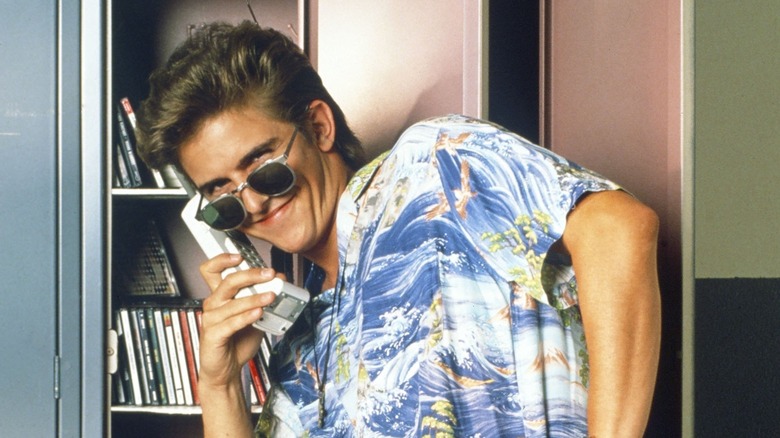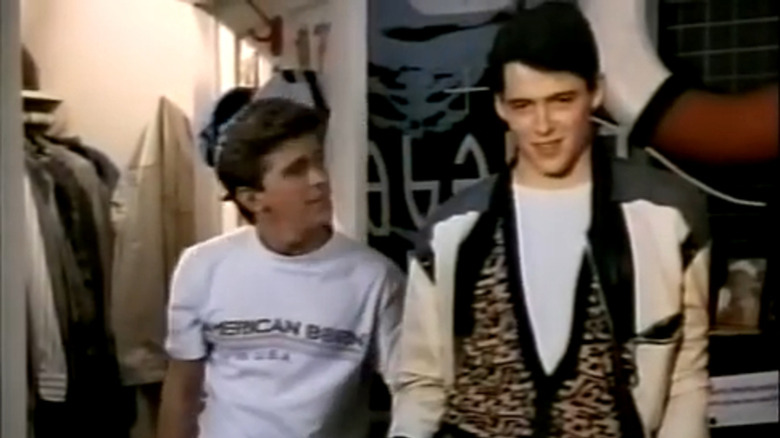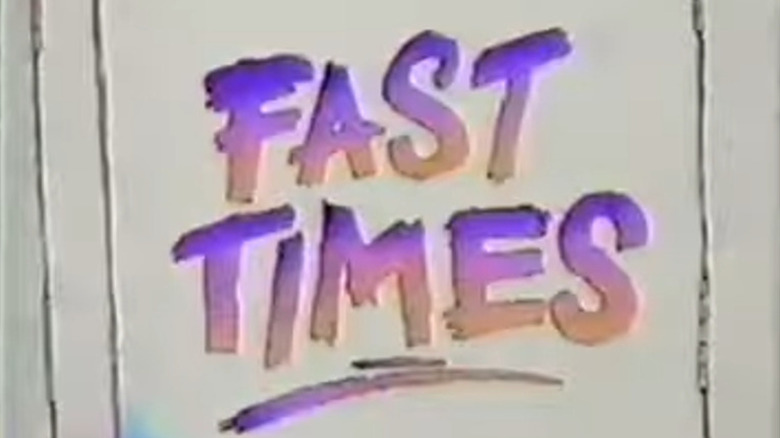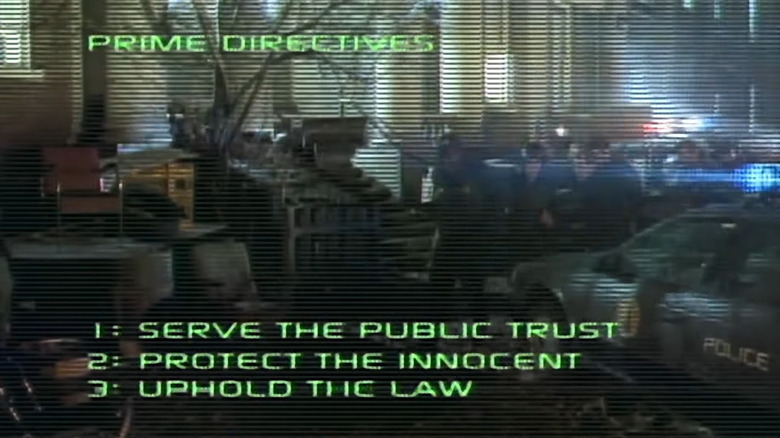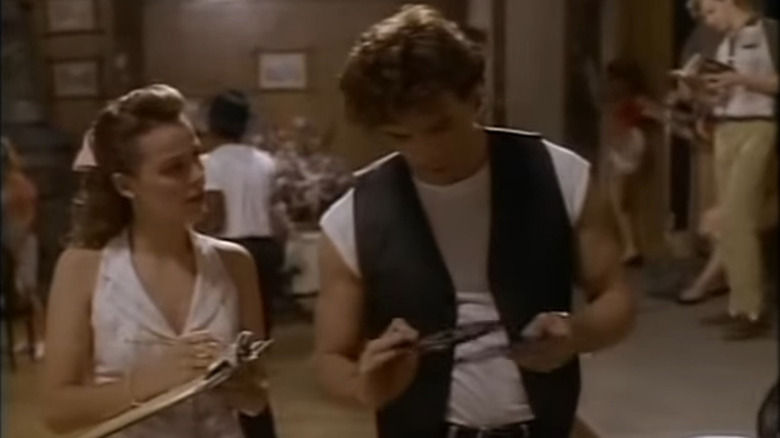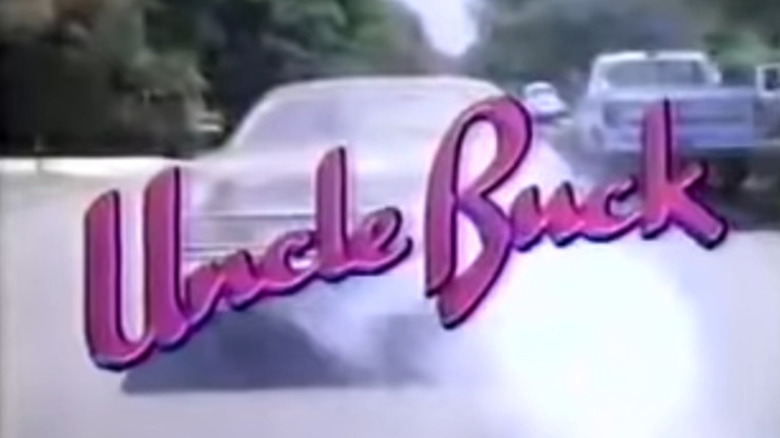5 Hit 1980s Movies That Turned Into Massive TV Show Flops
When you're a Hollywood executive trying to make those dollar bills, capitalizing on the success of a popular film by turning it into a television series seems like an obvious choice. After all, if the fans liked the original, they clearly want to see more of the characters in an expanded format, right? Well, this can be a successful strategy, but that doesn't mean that it always works. Especially in the 1980s, there were a number of extremely popular films that ended up failing to make the transition to television in a big way.
Sometimes this is because they had to recast the film's original stars, resulting in a watered-down version of what had worked so well on the big screen. Other times the series just wasn't up to snuff, quality-wise, or the film it was spun off was such a flash in the pan success that its moment had passed by the time the show went into production. Regardless, these series are proof that you can't always rely on box office success to ensure a popular TV show – in fact, sometimes the baked-in idea that a show is a lower-quality version of a beloved film is enough to turn audiences off. Here are just a few of the '80s TV spin-offs that failed to make the grade.
Ferris Bueller
"Ferris Bueller's Day Off" was the classic '80s movie for high school slackers, starring Matthew Broderick as a teenager so supremely confident in his own charm that he's able to get away with doing pretty much whatever he wants. The result was a massive financial success, with the film grossing over $70 million on a $6 million budget, earning a place in the top 10 box office hits of 1986. So why would you not try to turn that into a film, capturing more of Ferris's zany adventures? In 1990, NBC did just that. By that point, Matthew Broderick was a superstar, so the role of Ferris went to Charlie Schlatter.
But there was a little twist on the storyline: In the "Ferris Bueller" universe, Schlatter plays the real-life Ferris Bueller who has a movie made about him ("Ferris Bueller's Day Off"). At least in the pilot episode, that's the case — they don't ever bring up the movie version ever again after that. Without the involvement of '80s teen film legend John Hughes, who directed the original film, "Ferris Bueller" struggled to capture the magic of its predecessor, and was canceled after just 13 episodes. But every failure has a silver lining: "Ferris Bueller" gave us one of Jennifer Aniston's first roles as Jeannie, Ferris's straight-laced sister.
Fast Times
The poignant teen dramedy that put Amy Heckerling (who later went on to make "Clueless") on the map as a director, "Fast Times at Ridgemont High" captured the atmosphere of coming-of-age in the early 1980s. The film starred several up-and-coming actors, including Phoebe Cates, Judge Reinhold, Sean Penn, and even Forrest Whitaker in a small role. So naturally, when the decision was made to create a television series based on the film, they didn't bring back any of the actors who had made the original movie so iconic. In fact, only two performers from "Fast Times at Ridgemont High" returned for the show — Ray Walston and Vincent Schiavelli — and both of them were playing teachers who, no disrespect intended, were not the reasons audiences fell in love with the film.
Since it was aired on network television, the sexual aspects of the original movie had to be toned down or erased completely, causing "Fast Times" to lose the authenticity of "Fast Times at Ridgemont High." It was canceled almost immediately, airing on CBS in 1986 for just seven episodes. There is one bright spot: It features a baby Patrick Dempsey early on in his career.
Robocop
With some of the teen comedies on this list, you can almost forgive their creators for thinking that they would transition well to television. But "Robocop," the story of a murdered police officer who is selected for a pilot program to turn him into an emotionless killing machine, is just such a cinematic experience that it seems ridiculous to expect an adaptation of it to look good on television (especially considering the average TV budget at the time).
In 1994, seven years after the original "Robocop" film hit theaters (and after "Robocop 3" was poorly received by audiences, weakening the franchise), Canadian television decided to try their hand at a live-action series. Unfortunately, it was dramatically toned down in comparison to the violence and cynicism of its predecessor. The result was less than inspiring. The "Robocop" series, a pale shadow of the original destroyed in a bid to appeal to younger audiences, lasted for only one season before being unceremoniously canceled.
Dirty Dancing
Honestly, the producers of "Dirty Dancing" really should have just quit while they were ahead and thanked their lucky stars that the Jennifer Grey/Patrick Swayze romance was as big of a hit as it was. After all, no one expected it to perform particularly well. But instead, they tempted fate and decided to bring it back for a TV series in 1989, the year after the original film was released. As is becoming a pattern for these adaptations, none of the cast from the film reprised their roles in the television series, which producers really should have started to see as a red flag for the success of their projects.
Without the blistering chemistry between Grey and Swayze, the show didn't have a chance. It aired on CBS for just 12 episodes. Still, the "Dirty Dancing" franchise was determined to manifest a popular spin-off, creating both "Dirty Dancing: Havana Nights" and an ABC musical remake, each with varying degrees of success.
Uncle Buck
Oh really? You're going to try to make an "Uncle Buck" TV spin-off without either John Candy or Macaulay Culkin, the two actors who made the original comedy an unlikely success? Good luck with that. Released in 1990, CBS took a crack at turning the popular family comedy "Uncle Buck" into a sitcom, bringing Kevin Meaney in as Buck and Jacob Gelman in the role of his nephew originated by Culkin. Unsurprisingly, it didn't work that well. The show ran for 22 episodes, six of which remained unaired. It's possible that "Uncle Buck" might eventually have found its audience — after all, it has a perfect family sitcom premise.
But it wasn't helped by the fact that it was given two different time slots of death, first facing off against "The Fresh Prince of Bel-Air" and "Macgyver" before being moved into direct competition with the juggernaut "Full House." ABC tried it again in 2016, this time with Mike Epps in the titular role, but that production met the same fate — it was canceled after just one season.
